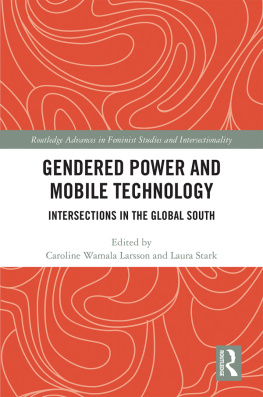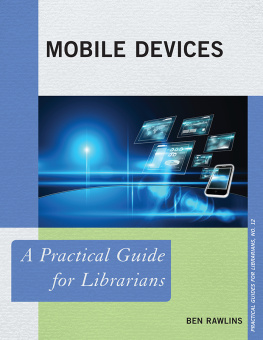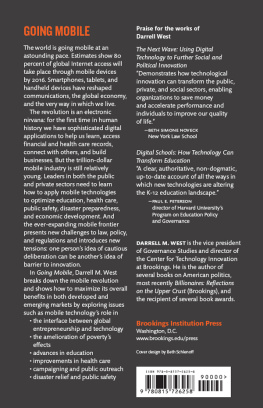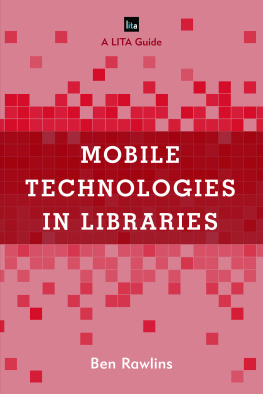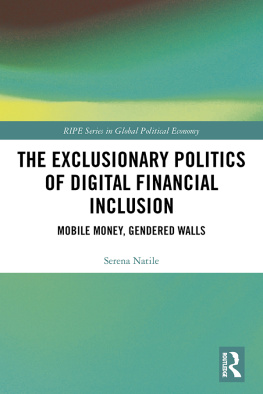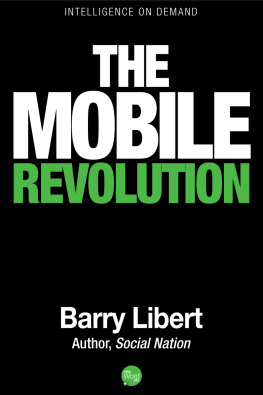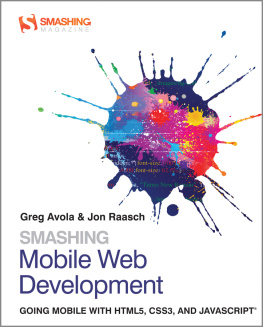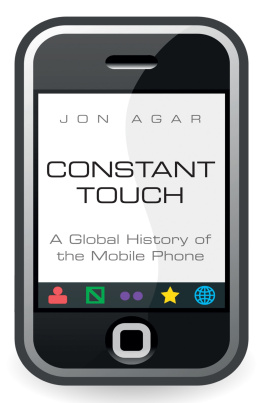Gendered Power and Mobile Technology
Mobile phones are widely viewed as the information and communication technology that holds the most promise for bridging global digital divides.
Gendered Power and Mobile Technology uses empirical research to focus on changing intersections between technology, gender, and other categories of social and cultural power differences (such as age, race, class, and ethnicity) in the use of mobile communication technologies. Asking how these intersections can inform development discourse, practice, and research, this volume seeks to rectify the lack of attention to the Global South, calling for more sensitivity to the contexts and consequences of mobile phone use. Indeed, drawing on case studies from Ecuador, Ghana, Kenya, Mexico, Peru, Tanzania, and Uganda, the book engages with the intersectionality paradigm to tease out the complexities of using mobile technologies for development purposes.
Gendered Power and Mobile Technology will appeal to students and researchers interested in fields such as media studies, development studies, gender and technology, feminist technoscience, anthropology, and sociology.
Caroline Wamala Larsson is Associate Professor in Gender Studies and Head of Research with the Swedish Program for ICT in Developing Regions (SPIDER), an independent resource centre at Stockholm University, Sweden.
Laura Stark is Professor of Ethnology at the University of Jyvskyl, Finland.
Routledge Advances in Feminist Studies and Intersectionality
Routledge Advances in Feminist Studies and Intersectionality is committed to the development of new feminist and pro-feminist perspectives on changing gender relations, with special attention to:
Intersections between gender and power differentials based on age, class, dis/abilities, ethnicity, nationality, racialisation, sexuality, violence, and other social divisions.
Intersections of societal dimensions and processes of continuity and change: culture, economy, generativity, polity, sexuality, science and technology;
Embodiment: Intersections of discourse and materiality, and of sex and gender.
Transdisciplinarity: intersections of humanities, social sciences, medical, technical and natural sciences.
Intersections of different branches of feminist theorizing, including: historical materialist feminisms, postcolonial and anti-racist feminisms, radical feminisms, sexual difference feminisms, queer feminisms, cyber feminisms, post-human feminisms, critical studies on men and masculinities.
A critical analysis of the travelling of ideas, theories and concepts.
A politics of location, reflexivity and transnational contextualising that reflects the basis of the Series framed within European diversity and transnational power relations.
Core editorial group
Professor Jeff Hearn (managing editor; rebro University, Sweden; Hanken School of Economics, Finland; University of Huddersfield, UK)
Dr Kathy Davis (Institute for History and Culture, Utrecht, The Netherlands)
Professor Anna G. Jnasdttir (rebro University, Sweden)
Professor Nina Lykke (managing editor; Linkping University, Sweden)
Professor Elbieta H. Oleksy (University of d, Poland)
Dr Andrea Pet (Central European University, Hungary)
Professor Ann Phoenix (Institute of Education, University of London, UK)
Professor Chandra Talpade Mohanty (Syracuse University, USA)
A Feminist Post-transsexual Autoethnography
Challenging Normative Gender Coercion
Julie Peters
Unsustainable Institutions of Men
Transnational Dispersed Centres, Gender Power, Contradictions
Edited by Jeff Hearn, Ernesto Vasquez del Aguila and Marina Hughson
Gendered Power and Mobile Technology
Intersections in the Global South
Edited by Caroline Wamala Larsson and Laura Stark
The Reproductive Body at Work
The South African Bioeconomy of Egg Donation
Verena Namberger
First published 2019
by Routledge
2 Park Square, Milton Park, Abingdon, Oxon OX14 4RN
and by Routledge
52 Vanderbilt Avenue, New York, NY 10017
Routledge is an imprint of the Taylor & Francis Group, an informa business
2019 selection and editorial matter, Caroline Wamala Larsson and Laura Stark; individual chapters, the contributors
The right of Caroline Wamala Larsson and Laura Stark to be identified as the author of the editorial material, and of the authors for their individual chapters, has been asserted in accordance with sections 77 and 78 of the Copyright, Designs and Patents Act 1988.
All rights reserved. No part of this book may be reprinted or reproduced or utilised in any form or by any electronic, mechanical, or other means, now known or hereafter invented, including photocopying and recording, or in any information storage or retrieval system, without permission in writing from the publishers.
Trademark notice: Product or corporate names may be trademarks or registered trademarks, and are used only for identification and explanation without intent to infringe.
British Library Cataloguing-in-Publication Data
A catalogue record for this book is available from the British Library
Library of Congress Cataloging-in-Publication Data
A catalog record has been requested for this book
ISBN: 978-1-138-03939-1 (hbk)
ISBN: 978-1-315-17590-4 (ebk)
Typeset in Times New Roman
by codeMantra
Mariana Barreto vila is a PhD candidate in the Department of Spanish and Portuguese at Northwestern University and a sociologist at the Pontifical Catholic University of Peru. Her doctoral dissertation grapples with how minorities, particularly women, navigate and inhabit male-dominated spaces in the art circuit of Lima, Peru, and analyses how womens participation in these art spaces disrupts the status quo of gender norms and opens the space for other forms of civic engagement. Previously, she was a researcher in the Programme Nuevas Trenzas: Mujeres Rurales jvenes en el siglo XXI (New Braids: Young Rural Women in the 21st Century) and looked at this populations life trajectories, how they navigated different spaces, and their expectations for the future as well as the social and economic gaps that affect them.
Perpetual Crentsil is a postdoctoral researcher in Social and Cultural Anthropology in the Department of Social Research at the University of Helsinki in Finland. Her research interests are HIV/AIDS in Ghana (Africa), reproductive health, African medical systems, and kinship. She has been a researcher within the Academy of Finland-funded project Mobile technology, gender and development in Africa, India and Bangladesh (20102013) and publishes extensively on mobile telephony, gender, and health in Africa.
Mireia Fernndez-Ardvol is a senior researcher at the Internet Interdisciplinary Institute (IN3), Universitat Oberta de Catalunya (UOC), within the research group Communication Networks and Social Change where she serves as the co-director. Mobile communication is one of her main areas of study, with a combined sociological and economic focus. She is interested in the analysis of the transitions towards aged networked societies, particularly in the relationship older individuals have with and through mobile communication technologies. In the area of development, her interest is on Latin America. Mireia has published her research with MIT Press and Routledge and in high-impact journals.

